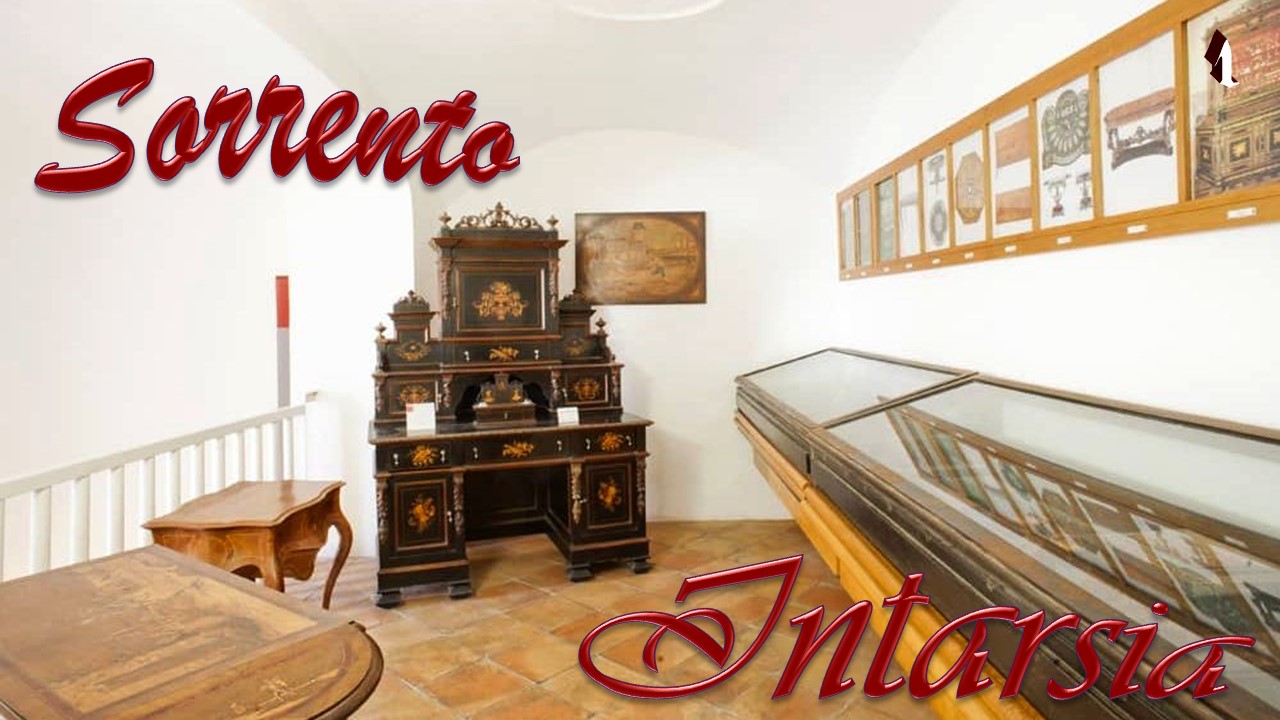Italia Sorrento 1 The Wood Inlay Museum
Title:
Italia Sorrento 1 The Wood Inlay Museum
Description:
The MUTA (Museo della Tarsia Lignea) is a private museum which was opened in 1999 inside the Pomarici Santomasi Palace (18th century). Museo della Tarsia Lignea is, using the word of its founder, the architect and designer Alessandro Fiorentino, a special museum-workshop where people can enjoy the old Sorrento’s tradition of wooden marquetry and buy the new production of hand-made objects and furnitures – PowerPoint PPT presentation
Number of Views:1
Title: Italia Sorrento 1 The Wood Inlay Museum
1
Sorrento
1
Intarsia
2
(No Transcript)
3
Intarsia is a form of wood inlay and a specialty
of Sorrento, a lovely old town clinging to a
cliff side some thirty-nine kilometers southeast
of Naples. The intarsia technique involves
arranging dif-ferent woods (mahogany, rosewood,
elm, chestnut, ebony, olive, walnut, and other
varieties) into elaborate surface designs. The
result is intricate renderings of cityscapes,
architecture, floral and vegetal motifs, human
figures, and geometric patterns
MUTA, Museo della Tarsia Lignea, located in the
Palazzo Pomarici Santomasi, in the historical
center of Sorrento
4
The MUTA is a private museum which was opened in
1999 inside the Pomarici Santomasi Palace (18th
century). Museo della Tarsia Lignea is, using the
word of its founder, the architect and
designer Alessandro Fiorentino, a special
museum-workshop where people can enjoy the old
Sorrentos tradition of wooden marquetry and buy
the new production of hand-made objects and
furnitures
Music Table 1859 by Michele Grandville
5
The display of the ancient and modern inlay
collection is presented on four floors of the
building and they document through separate
divisions, the art of inlaid woodwork in its many
facets
6
(No Transcript)
7
On the first floor, the museum displays a large
exhibition of paintings, prints and photos
8
(No Transcript)
9
Table by Roberto Pane, Antonino Terminiello 1938
10
(No Transcript)
11
(No Transcript)
12
(No Transcript)
13
(No Transcript)
14
The Wood Inlay Museum in Sorrento traces
the history of intarsia with its collection
of furniture and smaller objects from the early
1800s to the present displayed in cabinets of
curiosities
15
The bedroom of Princess Maria Sturdza, the wife
of Constantine Cortchacow (cousin of Tsar Nicolas
II). Intaglio in walnut, executed by Sorrento
Scuola d'Arte cca 1890
16
(No Transcript)
17
(No Transcript)
18
The bedroom of Princess Maria Sturdza, detail of
the wardrobe
19
Every detail of the decoration on the bed evokes
the rank, name and family of the Princess.
20
In addition to the coat of arms and monogram
carved on the foot of the bed, the wooden figures
of children on the four corners can be
interpreted as referring to her children
(Sorrento-Villa Cortchacow by Domenico Rea)
21
(No Transcript)
22
(No Transcript)
23
(No Transcript)
24
(No Transcript)
25
(No Transcript)
26
(No Transcript)
27
Luigi Gargiulo Table Torquato Tasso 1830
28
(No Transcript)
29
The technique of inlaid wood was widely used
across northern and central Italy by the late
Middle Ages. Masters of wood inlay
decorated medieval Italian churches with choir
screens, stalls, pulpits, and other church
furnishings with the intarsia technique
30
Although intarsia masters are documented in
Sorrento as early as the sixteenth century,
intarsia furniture became especially fashionable
throughout Europe in the 1800s, following the
crew of royal influence. Intarsias popularity
spread to France, and the Napoleonic court
commissioned intricate works of furniture and
other decorative pieces made in the Naples region.
31
(No Transcript)
32
An intarsia school was established in the 1880s
in Sorrento, and the craft continued to flourish.
Around the turn of the twentieth century, the
beautiful Amalfi Coast began to lure increasing
numbers of foreign travelers. As Americans,
Germans, English, and Dutch began to discover the
special beauty of the local intarsia tradition,
this outside interest ensured that the craft
would endure
33
Bed with canopy by Francesco Grandi and Arturo
Guidi 1887
34
Bed with canopy by Francesco Grandi and Arturo
Guidi 1887 detail
35
(No Transcript)
36
(No Transcript)
37
Table by The school of Art in Sorrento 1890
38
Table by The school of Art in Sorrento 1890
39
Coin cabinet by Francesco Grandi 1892
40
(No Transcript)
41
Cigar holder 1850 by Michele Grandville
42
(No Transcript)
43
During the restoration of the Palace, the
original architectural and decorative works were
brought to light, including frescoes and ceilings
covered with painted paper made by hand
44
(No Transcript)
45
(No Transcript)
46
A small circular staircase was found hidden
behind a wall accessible only a trapdoor hidden
under the floor on the second floor. This was a
secret staircase which would have allowed the
inhabitants of the palazzo to hide and escape in
the event of danger
47
(No Transcript)
48
(No Transcript)
49
(No Transcript)
50
(No Transcript)
51
Table by Luigi Gargiulo 1880
52
(No Transcript)
53
Table by Luigi Gargiulo 1880
54
(No Transcript)
55
(No Transcript)
56
(No Transcript)
57
(No Transcript)
58
Music stand by Michele Grandville 1850
59
Secrétaire dos d'âne 1880 Giuseppe Gargiulo
60
Secrétaire dos d'âne
61
Giusppe Gargiulo 1900 Nest of tables
62
Table Sorrento peasant Antonino Gargiulo 1891
63
(No Transcript)
64
(No Transcript)
65
On the ground floor of the Museum there is a
workshop where inlaid furniture and objects
signed by Alessandro Fiorentino Collection are
sold
66
The ground floor displays the exhibition of a
modern collection of inlaid objects and furniture
with decorative themes related to contemporary
culture
67
(No Transcript)
68
(No Transcript)
69
22 scatole dAutore (designer boxes)
70
(No Transcript)
71
(No Transcript)
72
(No Transcript)
73
(No Transcript)
74
(No Transcript)
75
(No Transcript)
76
Crosses designed and produced by Arch. Alessandro
Fiorentino
77
Text Internet Pictures Sanda Foisoreanu
Internet All copyrights belong to
their respective owners Presentation Sanda
Foisoreanu
2018
Sound Nino Rota - Danze del Gattopardo
Giuseppe Verdi Valzer brillante. Teatro alla
Scala di Milano































